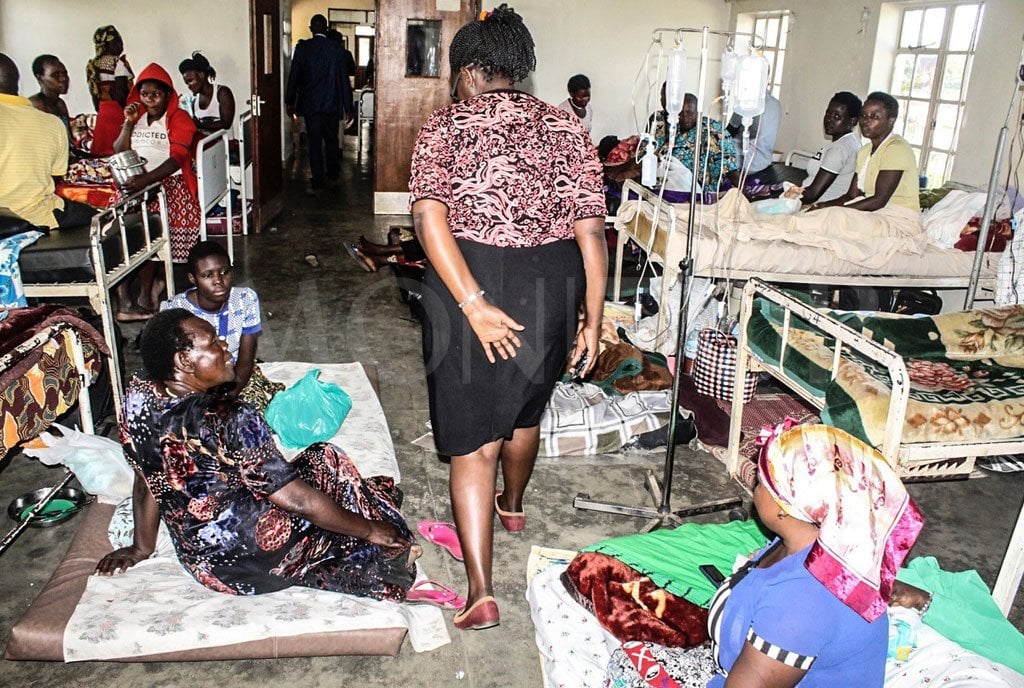Safe medication key for better healthcare

The Minister of Health, Dr Jane Ruth Aceng. PHOTO | FILE
What you need to know:
- Uganda experiences critical medication challenges relating to practices and errors such as incorrect dosages, unclear instructions by healthcare givers to their clients, use of abbreviations and inappropriate or illegible prescriptions and self-medication, among others.
In May 2019, at the 72nd World Health Assembly, a “Global Action on Patient Safety” resolution was adopted by World Health Organisation (WHO) urging member states to recognise patient safety as a key priority in health sector policies and programmes. The resolution established ‘World Patient Safety Day’ as an official WHO day to be observed annually on September 17.
This commemoration challenges us as healthcare givers to ensure that we achieve our obligation of delivering Medication Without Harm; the slogan for this year’s World Patient Safety Day celebrations.
The need for high medication safety standards demands that clinicians prescribe, dispense and administer appropriate medicines and monitor their use. The Medication-Without-Harm strategy aims at reducing severe avoidable medication-related harm by 50 percent globally in the next five years.
Uganda experiences critical medication challenges relating to practices and errors such as incorrect dosages, unclear instructions by healthcare givers to their clients, use of abbreviations and inappropriate or illegible prescriptions and self-medication, among others.
According to the US’s Institute for Healthcare Informatics, the global cost associated with medication errors is estimated at $42b annually.
Government is committed to ensuring availability of adequate and safe medicines and supplies in the entire country. This is why we have strengthened the National Drug Authority (NDA), whose mandate is to ensure that the drugs we have on the market are of good quality, safe and efficacious.
Health care is largely dependent upon medicines for preventing infections, reducing pain, and treating illness. Quality care means getting the right medicine, in the right dose, at an affordable price, by all the people who need it.
The Ministry of Health established a secretariat at NDA that monitors and analyses side effects from drugs. We have put in place several platforms where the public can report drug-related problems. These include a toll free phone number (0800101999), WhatsApp number (0740002070), email ([email protected]). Reporting unexpected drug reaction helps us in taking regulator action.
We have also continued to increase availability and supply of essential medicines in the health facilities. To avert rampant stock-outs and expiry of medicines and supplies, the ministry, through National Medical Stores has empowered managers of health facilities to quantify and order for medicines based on their specific needs. We are also in advanced stages of rolling out the web-based ordering system at lower-level health centres.
We are aware that inadequate staffing contributes to mismanagement of medicines and related supplies which goes against the principle of quality patient care. The minisitry is committed to recruiting more staff to reduce the patient-health worker ratio.
To enhance the safe storage of medicines and supplies, we have constructed 19 medicine stores in the districts of Ntoroko, Zombo, Nakaseke, Buikwe, Luuka, Pallisa, Serere, Napak, Nakapiripirit, Bukwo, Alebtong, Agago, Lwengo, Lyantonde, Isingiro, Buhweju, Sheema, Rubirizi, and Buliisa. We are also constructing a new modern warehouse and a central vaccine store for NMS at Kajjansi with the capacity of 30,000 pallet positions compared to the current 8,000 pallet positions.
In November 2021, the ministry launched the Patient Safety Project. The project is focusing on improving the safety of our clients and health workers through the reduction of unsafe practices in all the 16 regional referral hospitals, China Uganda Friendship National Referral Hospital-Naguru and Tororo General Hospital. The project farther aims at having better working environment through establishing reliable reporting mechanism for medical errors and near misses.
As a ministry, we are committed to ensuring that the right tools and materials are made available to facilitate the right diagnosis and responsible prescription practices. We are strengthening stakeholder coordination and support towards increased demand for accountability and quality services as well as mobilising for additional support for the highly needed resources to meet the increasing demand for medication safety and general health care in Uganda.
The author is the Minister of Health




